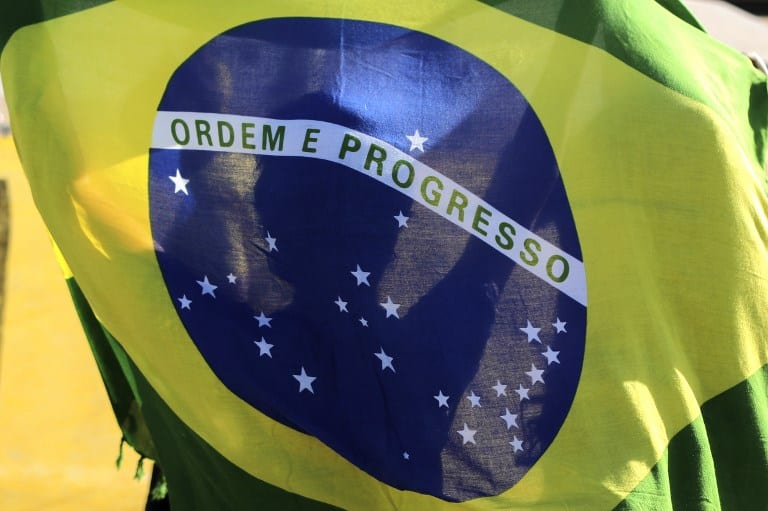Brazil’s death toll from the new coronavirus surpassed Italy’s to become the third-highest in the world, as Europe emerged from punishing lockdowns and the EU pressed for a reopening of borders.
The bleak figures from Brazil underlined the toll the virus is taking in Latin America, the latest epicenter in the pandemic, even as Europe was emerging from its darkest days — with the latest help coming from a new 600-billion-euro ($674 billion) economic stimulus measure announced by the European Central Bank.
In a bid to further boost growth, the EU Commission called for member states to lift all border restrictions by the end of June.
“We are coming very close to a situation where we should lift all the internal border restrictions and border checks,” Home Affairs Commissioner Ylva Johansson said late on Thursday.
But across the Atlantic, the pandemic continued to gather pace.
Brazil’s death toll topped 34,000, overtaking Italy’s to become the third highest in the world, while cases Mexico, Peru, Ecuador and Chile continued to mount.
Impoverished Haiti, with its fragile health system, is also seeing worrying trends as infections and deaths rise in the face of swirling rumours and disinformation about the severity of the disease.
When 25-year-old Jonel Cadet tested positive, he said: “I didn’t believe it, and I even said the president was talking nonsense.”
“It was only by coming here that I really started to believe, because I saw people who were much worse off,” he told AFP from a hospital in Cite Soleil.
Oxygen shortages
Since emerging in China late last year, the virus has infected at least 6.6 million people, killed more than 390,000 and wreaked havoc on the global economy by forcing millions to stay inside their homes.
After Brazil reported a new 24-hour record death toll, its fatalities stand behind only the United States, with more than 108,000 deaths, and Britain, with nearly 40,000.
Far-right President Jair Bolsonaro has fiercely criticised coronavirus stay-at-home measures, arguing that they are needlessly hurting the economy.
Brazil is the hardest-hit country in Latin America, though Mexico reported a record number of new infections for the second straight day, with 4,442.
And in Peru, desperate residents lined up to buy oxygen tanks for their loved ones, as the government declared oxygen a “strategic health resource” amid an acute shortage.
‘Global public good’
With the pandemic starting to hit the developing world with full force, UN Secretary-General Antonio Guterres said a new vaccine had to be available to everyone across the world.
“A vaccine must be seen as a global public good — a people’s vaccine, which a growing number of world leaders are calling for,” he said in a message to a virtual summit hosted by Britain.
Governments pledged $8.8 billion at the talks to support Gavi, the global vaccine alliance.
Further buoying hopes, British pharma giant AstraZeneca said on Friday it was “on track” to roll out up to two billion doses of a coronavirus vaccine in September if trials prove successful.
Huge EU stimulus
Europe meanwhile continued its tentative exit from lockdown, hoping to restart its stalled economies without sparking a second wave of infections.
Looking to give the pummeled eurozone economies a massive boost, the European Central Bank added 600 billion euros to its emergency bond-buying scheme.
Governments are especially keen to save what they can of the summer tourism season and were reopening borders this week.
Switzerland said on Friday it would be open for travellers from the EU and Britain on June 15, after Italy opened its frontiers to European visitors this week and Austria scrapped entry checks at its borders — except for the one with Italy.
France also had positive news, with a top immunologist saying on Friday the outbreak had abated as daily deaths and new cases had fallen far below their March peaks.
“We can reasonably say the virus is currently under control,” said Jean-Francois Delfraissy, the head of the government’s scientific advisory council.






